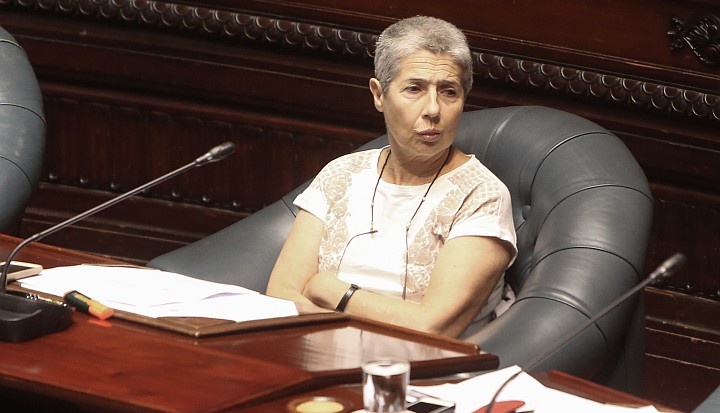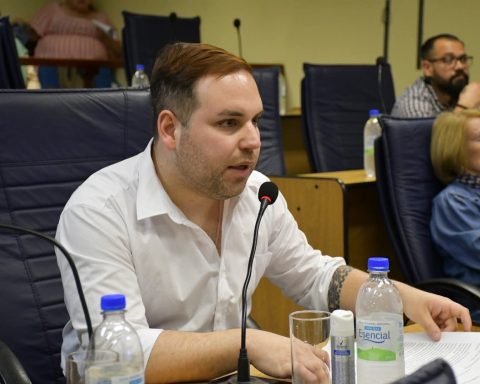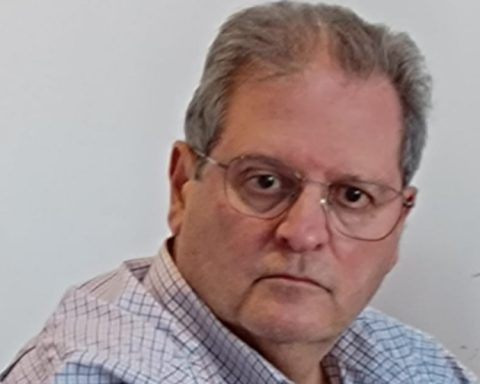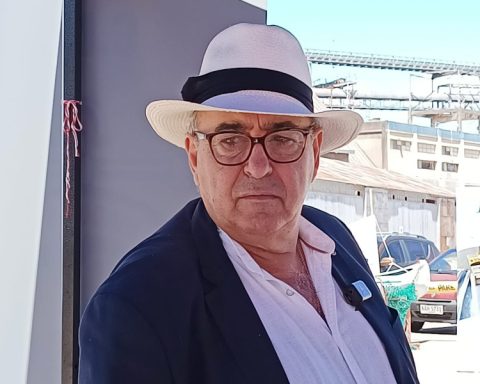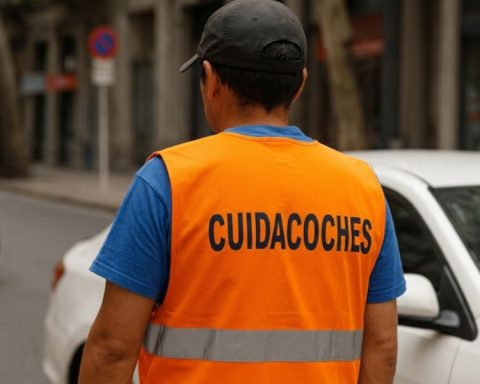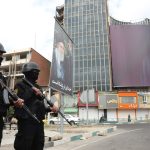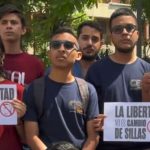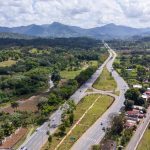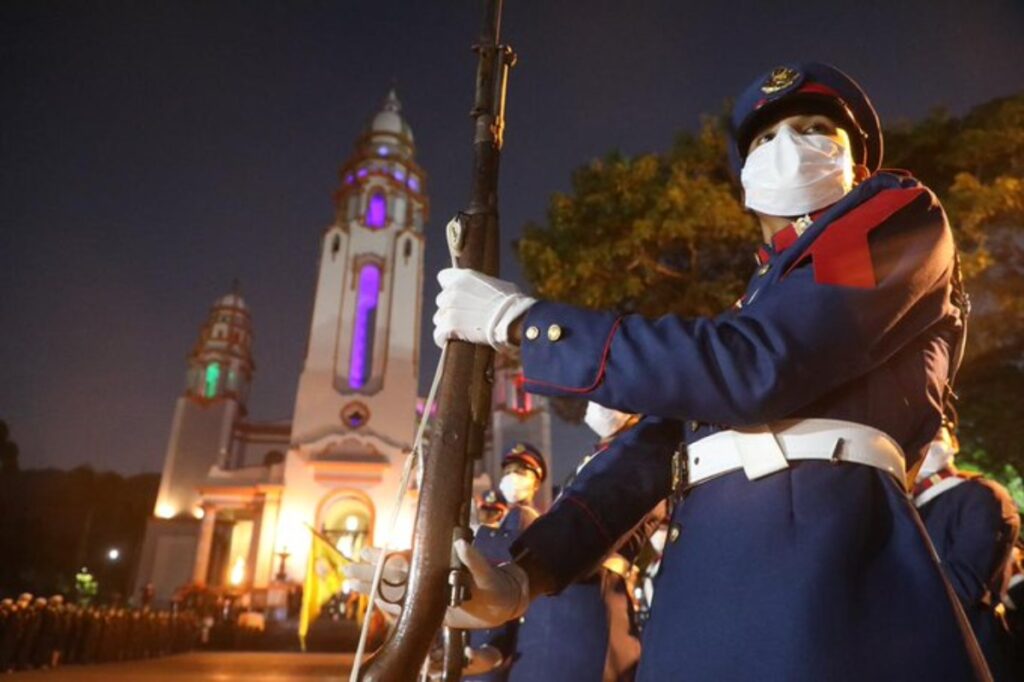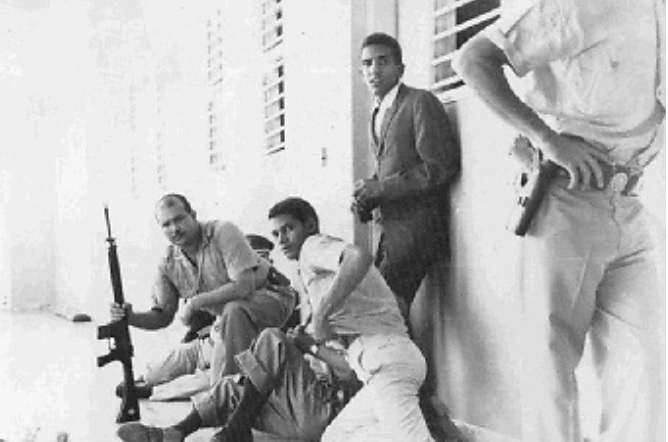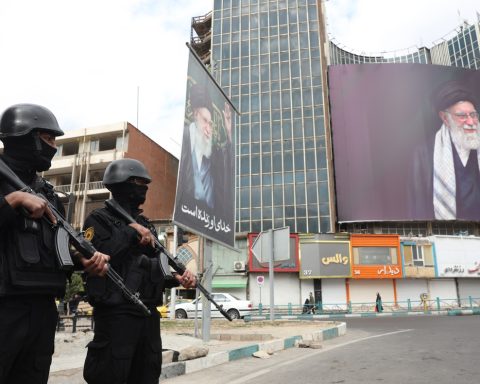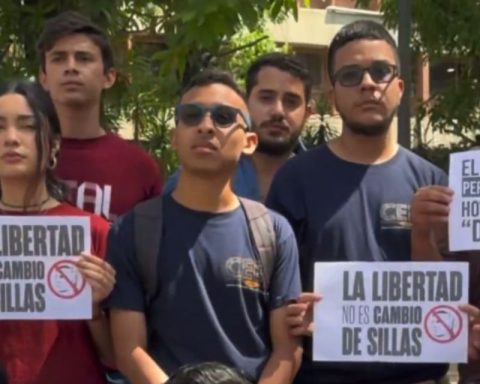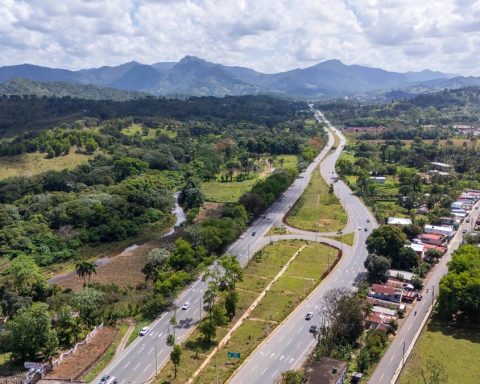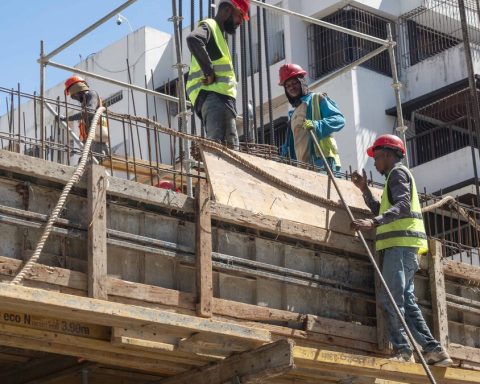Amanda Della Ventura is a senator of the Broad Front, elected in the last national elections for list 77 (Artiguista Slope). With this result, she was the first female senator from the department for the aforementioned group. In addition, she was in 1989 one of the founders of the sector, together with José Bayardi, Eduardo Brenta and the former president of Montevideo, Mariano Arana. She is a teacher by profession (retired) -after teaching for 34 years-, her first steps into the world of politics were when she became edila of the department, in 1990.
About Parliament, legislative life, projects, the Broad Front and the expectations it has for the year 2023, he spoke with Diario La R.
– What balance can you make of the parliamentary activity of this year 2022?
– This year has been very intense. From the issue of accountability where the resources for education, health and even housing are reduced and the promises that were not fulfilled. In addition to all this, the call to the room that was made to the Minister of the Interior, Luis Alberto Herber, regarding the issues of Sebastián Marset and Alejandro Astesiano. In other words, it has been 2022, as he said, intense.
– And social security?
– The Social Security project harms workers, and it also really worries us. Now they will be voting on December 27, 28 and 29. In the Commission, voting begins next Tuesday the 20th.
– What other issues concern you?
– Perhaps one of the issues for which the corresponding minister can be summoned to Parliament is the one referring to the educational transformation, and the problems that have arisen. Also during 2022 there has been the issue of the Neptuno project, and the change that is taking place in that it is the first time that access to drinking water is going to depend on the private sector, or actually the processing and purification of that water . All this is how it was said: in 2022 we are going to lengthen all the issues and perhaps leave a free half next year, already pre-electoral, betting that people forget these very negative things that are taking place.
– Given the position of the Government in these matters, how could the scope of the response given by the Broad Front as opposition be qualified at the legislative level?
– We have assumed it with great responsibility and seriousness. We know that sometimes the comrades of the Frente Amplio expect “more toughness” from the Broad Front. I think that the political force chaired by Fernando Pereira has performed very well in terms of the role of constructive opposition, and we from Parliament have been taking solid steps. It is not that issues have appeared and we immediately go off to a legislative action. We have meditated, debated, exchanged, reflected on each step we have taken. In that sense, we believe that we could have a good rating. Perhaps from the outside our performance is not seen as so positive, but what I know is that our bench is very solid. It is enough to see when there have been transcendent issues how each compañero and compañera, senator and senator, contributes from that serious and responsible task, with foundations and with a lot of study. In that sense, I am really very satisfied and very happy with integrating this bench.
– On so many issues on which the Broad Front disagrees with the government, what stands out and takes positive from the debates with nationalist, colorado, independent and Cabildo Abierto legislators?
– What I rescue from the Senate and Parliament itself, is an area that we have to preserve to take care of democracy and institutionality. So, having carried out debates of many hours on different topics, but in general beyond some exception, in a climate of debate where we were able to listen to what the government coalition has to justify, and in turn, each one of we really express what as a Broad Front we have agreed, resolved and deepened. I think that is what I would rescue the most from the work in terms of the debates. Later, many times we do not share what is said, and many times in the interventions we refer to the different visions. In other words, no one is unaware that we see the reality of the country differently, we see the ways of solving problems differently, but that does not mean that we are not attentive to the arguments of the coalition, and that our arguments can be heard. Many times, for now I always say that when you listen, you can change your head a little. So the fact that we can talk, we can justify and give logical reasons for the things we say, gives me an attitude of hopeful life that something comes from these things we say, and supposedly from them too. Because sometimes obviously we can be told arguments that no, we had not considered. What I rescue is that of democracy. I believe that this is priceless, that this is something that we have to take great care of, and that in some way characterizes the actions of this Uruguayan politician.
– Are there issues or projects in which you consider that both the ruling party and the opposition could have advanced and progressed more, because given the dynamics and day-to-day agenda of so many issues, it has been postponed?
– There are many issues that are pending in the commissions, and precisely because of this daily reality, others are prioritized and not dealt with. That’s how it is. I presented and my bench accompanied her, the project for the non-prescription of crimes for abuse against children and adolescents, but it is in the Constitution and Codes commission. Two years have gone by and it has not been possible to treat it, something that is supposedly beneficial, precisely for those who are more fragile, such as children and adolescents. Then there is this a project that we were to agree with the coalition on environmental crimes. Even the Ministry of the Environment had somehow come out to express that it agreed. We resumed a project that came last period. All the senators of the Broad Front signed it, later some small modification was obtained from the ministry (of the legal part), and we were practically ready last week to approve it. But we had a visit from Germán Aller (grade five at the UdelaR Law School), and he raised some doubts. So, if there is a will to remove it. I am aware that those who make up the commission and who are representatives of the Cabildo Abierto, Partido Colorado and Partido Nacional, along with the Frente Amplio, there is a will, but from what I explain, the project is on hold. It is important because in some way it will penalize in the Penal Code certain penal sanctions for certain crimes. In that we will surely be able to move forward as soon as the year starts again after the break well.
– As a senator from the opposition, what are your prospects for 2023, considering the issues that need to be addressed?
– What I would and hope is that the government attends to the critical social and economic situation of the population. They have the votes, and we don’t. The issue of unemployment is worrisome. The issue that there is hunger in our population is worrisome. We hope the government addresses that. It is very sad to see many Uruguayans suffering. I hope with hope that this issue is really taken seriously, and alternative paths are seen, because the population no longer gives more. In addition, the situation of retirees and workers, many in an informal situation and others with the minimum wage cannot live. The government has to do. He has something to do with. That is what I would expect for next year.
How the Permanent Commission of the Senate will work
The Permanent Commission of the Legislative Palace met on Friday the 16th, and reported on the issues entered, set the work regime and elected legislator Amanda Della Ventura as President. The vote was founded by Senator Sebastián Sabini. In the Chamber of Senators, the substitutes in this commission are Silvia Nane and José Nunes for the Broad Front, Sergio Botana for the National Party and Pablo Lanz for the Colorado Party.
It is not expected that the commission will have meetings on a regular basis, except when called. What he can do is call a minister to the room and even summon a minister to question him. What this commission does not do is deal with new bills. If the Executive Power sends a project, the commission does not deal with it.
It also resolved to meet on January 27 at 10 am to pay homage in Memory of the Victims of the Holocaust. For before that date, in principle, the commission is not convened.
The Commission voted affirmatively to carry out the previous Half Hour in each session, and to designate legislators Graciela Bianchi, Germán Coutinho, Sebastián Sabini and Sebastián Cal to the Special Commission for the Study of Venias. Said group will deal with dismissals, promotions and other issues.
